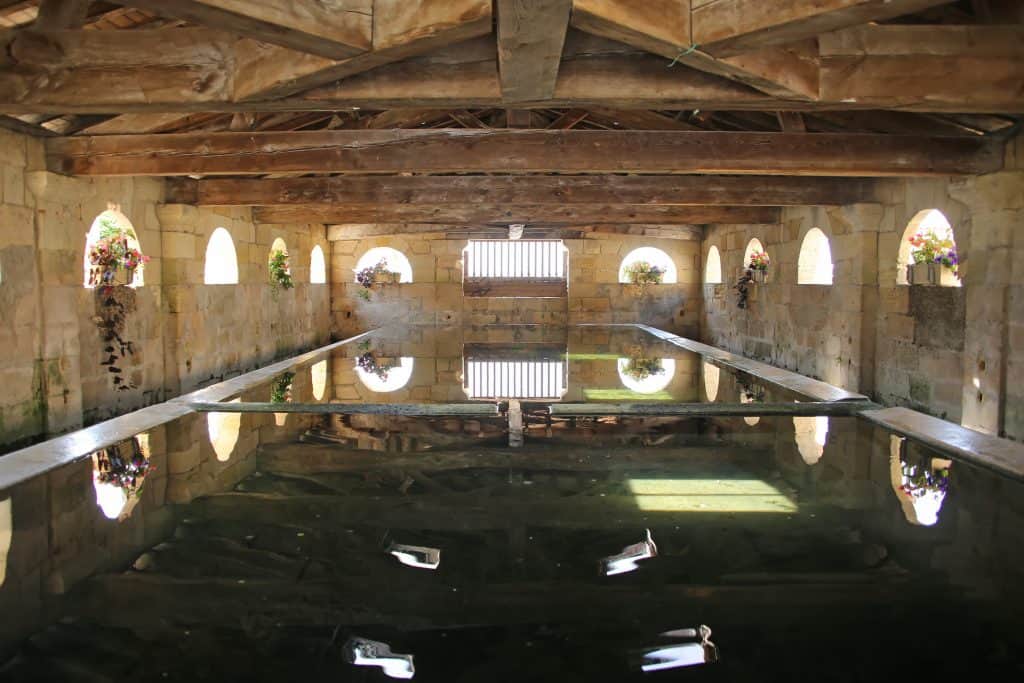Perfume has existed for millennia.
All of the great ancient civilizations, from the kingdoms and city-states of Mesopotamia, to Ancient Greece and Egypt, to the Chinese and Roman Empires, placed a special emphasis on perfume. In some cultures, perfume came to occupy an important position in cultural and religious traditions, and it still does to this day.
But have you ever wondered why exactly perfume was invented? Was it created, like so many other great inventions of history, to fulfill a specific need or purpose? Or is it simply a luxury, created for aesthetics only?
Perfumes were used to mask unpleasant body odors in the days before modern hygiene. In later periods, perfume was employed for a variety of medical purposes. Ultimately, then as now, humans like to smell good, and the better you smell, the easier it will be to attract potential mates.
Of course, because it’s so ancient, no one can say exactly why perfume was invented for certain. But it’s likely that it came out of one of these needs.
Let’s dive a little deeper.
The Creation of Perfume
As I wrote about here, the origin of perfume can be traced to the ancient Near East, the Mediterranean and the Indian Subcontinent. Perfume was highly prized in ancient Babylon, Egypt, and the Indus Valley, and was widely disseminated throughout the pre-modern world. Ancient Rome, Greece, and Persia were quite fond of perfume as well, and there is evidence that an early perfumery tradition existed in ancient China too.
As time went on, perfumery was refined and updated as early science grew. Particularly in the Islamic world, where many of the great advancements of medieval science and medicine were achieved, perfume and incense played an important role. The Prophet Muhammad had exhorted his followers, after all, to bathe and perfume themselves for Friday prayers, and indeed, the Middle East, perhaps moreso than any other part of the world, still has a robust perfume culture.
Perfumery grew tremendously in medieval and early modern Europe under royal patronage. Catherine de’ Medici, a 16th century Italian noblewoman who went on to become the Queen of France, for instance, almost single handedly cultivated the perfume industry in France, particularly in Grasse, which is still one of the most important centers for perfumer training and raw material manufacture in the world.
For centuries, perfumers produced specialized blends for the crowned heads – such as Guerlain’s Eau de Cologne Imperiale, created in 1860 to cure Napoleon III’s wife Eugenie’s headaches, or its progenitor Eau de Cologne Imperiale Russe, made especially for the Russian Emperor Alexander II.
The art of perfumery continued to grow and change along with new discoveries and advancements in science, eventually taking on the form we know and love today.
But why?
I’ve identified some probable motivations for the invention of perfume.
Hygiene
It’s no secret that for the vast majority of human history, we were far more…fragrant than we are now, and not necessarily in a positive sense.
While the foul mud-caked, sweat-stained, and pockmarked image of pre-modern humans is probably overblown, they were hardly up to the hygienic standards we expect today.
And how could they be? They lived in homes without air conditioning or domestic plumbing, often doing hard manual labor in less than sanitary conditions. Sewage was not often properly dealt with, streets were more likely than not unpaved, many people lived alongside their animals, and there were no antibiotics around to treat diseases.
The clergy in particular, depending on the period, were known to go around stinking up the place. Filthiness, it was thought by some, was a sign of godliness, as it proved that one was spending one’s time in prayer and contemplation rather than wasting it on vanity.
The body of Saint Thomas Becket, the famous English martyr of the 12th century, for instance, was found crawling with lice and fleas. Saint Margaret of Hungary outright refused to wash her hair, wishing to be plagued with lice as a symbol of her great piety. Queen Isabella of Castille, one of the famed reyes católicos of Spain, allegedly bragged that she had only taken two baths in her life: one on the day she was born, and one on her wedding day.
Despite it all, bathing was still more common than you might think. Most people in medieval Europe had washbasins, and washed at least their faces every morning. Bathhouses both in Europe and in the Middle East and East Asia were widespread. Most physicians of the time recommended taking a bath at least once every week, and to wash one’s hair at least once every three weeks, depending on one’s financial circumstances.
Even so, that’s one bath a week. The global average is at least one shower a day. So while the stereotype of stinky medieval peasants might be somewhat exaggerated, it’s very likely that there was still a lot more body odor going on than what modern folks are accustomed to. I don’t know about you, but if I didn’t take a shower for a week, I could clear a room with my stank.
Mitigating body odor could therefore be one of the likely motivations for the invention of perfume millennia ago.

Medicinal Purposes
It’s long been recognized that certain scents have aromatherapeutic properties. Likewise, perfume has been used for centuries as a prophylactic, a substance or medicine intended to prevent disease and illness.
During the Black Death in Europe, plague doctors went about with masks filled with aromatic herbs, spices, and flowers, a practice which was believed to ward off the plague.

In the medieval period and Renaissance, the wealthy often wore or carried an object called a pomander, which was essentially a ball or bag filled with fragrant materials such as ambergris, musk, cloves, various resins, and flowers. This both made them smell good, and, according to physicians of the time, thwarted disease.
Later in the Renaissance period, the pouncent box emerged, which had the same function as a pomander, but was designed to carry liquid perfumes.
Cardinal Richileu, chief minister of France during the reign of Louis XIII in the 17th century, was known to go about with a talisman impregnated with a perfume known as Eau de Melissa, which he used for his heart problems and to cure his headaches.
The original Eau de Cologne from the 18th century, still produced today under the name of 4711, was originally thought to ward off bubonic plague, and was considered a “cure all”, meant both to be worn as a perfume and drunk as a medicine.
Could perfume have been invented as a kind of medicine? Of course, no one can say for certain. But it could very well be one possible reason.
Attraction
The people that came before us lived lives so vastly different from the ones we lead today that it might seem difficult to connect with them. However, humans haven’t changed fundamentally since we were living in caves and hunting wooly mammoths. We have much the same needs, dreams, vices, and desires as ancient people, despite the gulf of time that separates us.
Then as now, humans like to smell good. And we certainly like our romantic partner(s) to smell good as well.
Smell plays a large role in attraction. Humans secrete pheromones, hormones which incite…interest in the opposite (or same) sex, and are largely received through scent.
Though the jury is still out on the extent to which perfume plays in attraction, it certainly doesn’t hurt matters. At the very least, we don’t want our partners to smell or have strong body odor; smelling like a beautiful perfume might very well net you a few points in the eyes of your potential partner.
Ancient people were just as interested in finding love as we are today. Perhaps some of the first perfumes were love potions, meant to entice a lover with a beautiful scent?
It’s not entirely out of the question.
The Final Word
Of course, it’s impossible to know the true motivation for the invention of perfume. Perfume is ancient, and was independently created by a number of different civilizations. However, we can readily speculate about the reason for the invention of perfume by considering the conditions and attitudes of the past.
Perfume was likely invented as a way of dealing with unpleasant body odors in times before domestic plumbing and modern hygiene standards. However, it could have been invented for medical purposes, or simply to make one smell pleasing to the opposite sex.
Whatever the reason, it’s clear that perfume has occupied a place of importance in human cultures for thousands of years, and will continue to do so as long as we have noses to sniff with.




